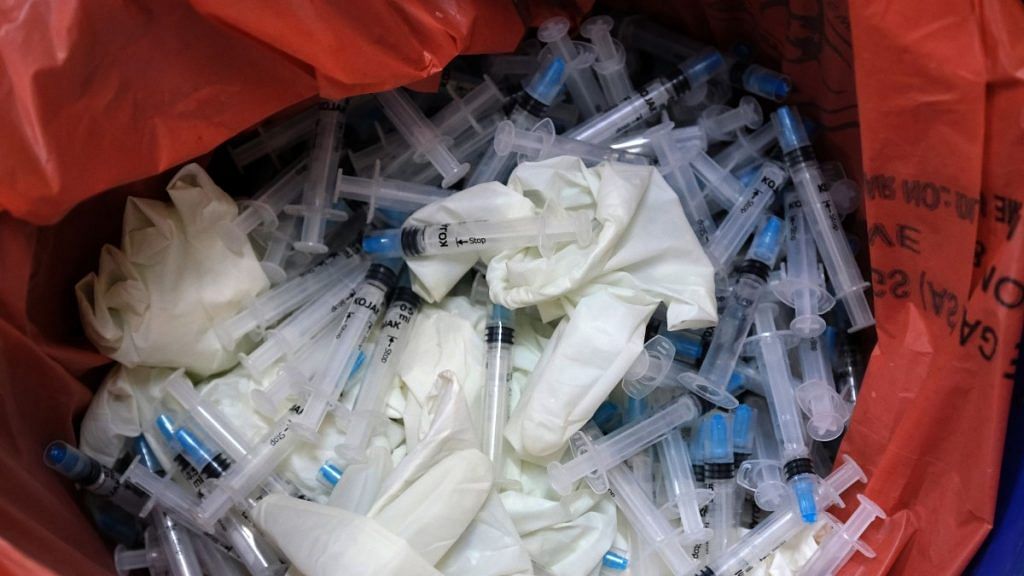Zurich: The response to the pandemic has produced tens of thousands of tons of extra medical waste, challenging disposal systems and threatening human health and the environment, according to a World Health Organization report.
To get a sense of the scope of the problem, the WHO examined the fate of 87,000 metric tons of personal protective equipment, such as rubber gloves and masks, that were shipped around the world through a United Nations emergency initiative between March 2020 and November 2021. Most of that equipment ended up as waste, the UN agency said.
The initiative also shipped 140 million testing kits, generating 2,600 tons of non-infectious waste that was mostly plastic, and 731,000 liters of chemical waste. The billions of vaccine doses that have been administered globally have produced 144,000 tons of additional waste in the form of syringes, needles, and safety boxes, the WHO said.
The overall issue is likely to be much worse, because the WHO estimates don’t take products into account that were procured outside its emergency initiative, nor littering by the public of disposable masks.
About a third of healthcare facilities aren’t equipped to deal with existing waste loads, the WHO said. Overwhelmed waste systems, especially in lower-income nations, mean that health-care workers face the risk of needle injuries and burns, as well as exposure to pathogenic microorganisms, the WHO said. People residing near poorly managed landfills and waste disposal sites are at risk of contaminated air and poor water quality. –Bloomberg
Also read: India set to present budget topping $500 billion, sustain recovery from pandemic disruptions
